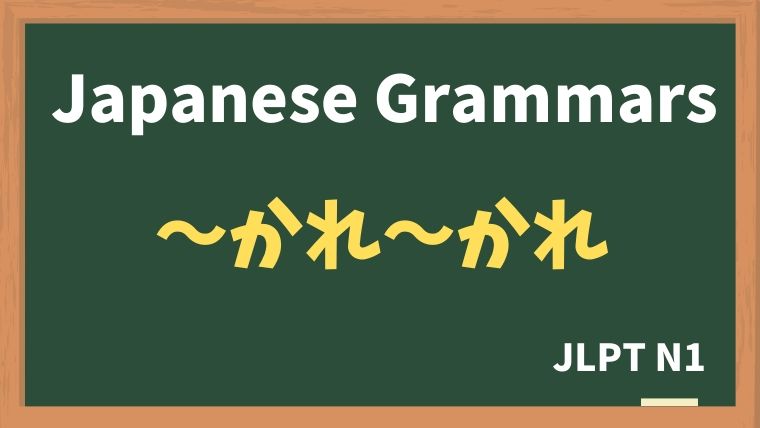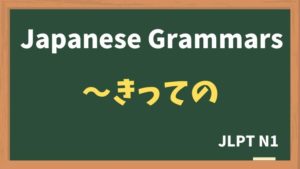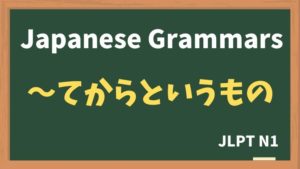
Explanation:〜かれ〜かれ
fa-check-circleMeaning
"〜ても〜ても、・・・だ / どちらの場合であっても・・・だ”
"sooner or later / more or less"
Used to indicate a range of conditions or states, often involving opposites or contrasting qualities. It is frequently used to suggest that regardless of one’s position within this range, a certain outcome or condition will still apply. The two opposing adjectives are usually connected by "かれ."
fa-check-circleForm
イAかれ + イAかれ
※反対の意味を持つ2つのい形容詞が使われます。
Two i-adjectives which have opposite meanings are used.
fa-check-circlePoints
- Opposing Adjectives: The expression pairs two contrasting or opposing adjectives (often in their stem form) to suggest that both extremes lead to the same conclusion or result.
- Regardless of Differences: The meaning conveys that regardless of the specific circumstances, a general statement applies.
- Common Usage: It’s a somewhat literary or formal expression, not as common in casual speech.
fa-check-circleJLPT Level
N1
Sample sentenes
遅かれ早かれ、毎日練習していれば必ず上手になりますよ。
Sooner or later, if you practice every day, you will definitely improve.
多かれ少なかれ、誰にだって夢はある。
More or less, everyone has dreams.
どんな人でも多かれ少なかれ、ストレスを感じて生活しているものです。
Everyone, more or less, lives with some level of stress.
嘘をついたら、遅かれ早かれ、いつかバレますよ。
If you lie, sooner or later, the truth will come out.






